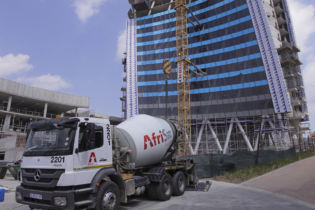While insuring a construction project may be a complex process Uwe Putlitz, CEO of the Joint Building Contracts Committee, says all parties involved must take out adequate insurance for the full lifespan of a project.
Putlitz says the concept of insurance is straightforward but the actual selection of appropriate policies for specific contracts is not. “That is why it is important to deal only with a broker experienced in construction industry insurance matters: this type of cover is not a do-it-yourself activity and, if dealt with improperly, all claims will be rejected. The insurance must be carefully considered to include and list all identified risks including the location of the works, the type of structure, the method of construction and where existing structures or other site conditions may be at risk,” he explains. Putlitz says generally five types of insurable risk generally apply to all construction projects: Contract Works Insurance (CWI): This deals with the whole works during the construction period including plant and materials, work by specialist contractors, and additional professional fess where damage to the works occurs. Such a policy must be extended to include possible damage to existing buildings during alterations and additions and/or to include adjoining structures; Supplementary Insurance (SI): Deals with expense or loss caused by events outside the normal control of the parties, including civil commotion, riots, strike action etc not included in the CWI policy. SI can be obtained from the South African Special Risks Insurance Association (SASRIA) in South Africa, or the Namibian Special Risks Insurance Association (NASRIA) in Namibia. Supplementary to the CWI, SI is not available to the public and needs to be arranged by a broker; Public Liability Insurance (PLI): Provides indemnity in the event of a death or injury to any person and or accidental loss or physical damage to tangible property;Removal of Lateral Support Insurance (RLSI): This applies where the execution of the works may cause weakening or damage or interference with the support of land or property on site or adjacent to the site and the consequences thereof; and
Other Insurances (OI): This applies to cover risks in transit of goods imported from overseas specifically for installation in a project. Pulitz notes that tender documents must always specify whether the employer or the contractor is responsible for insuring the works in the joint names of the parties. “Regardless of who insures the works, the beneficiary should be the employer – and he or she should pay the premiums,” he adds.







